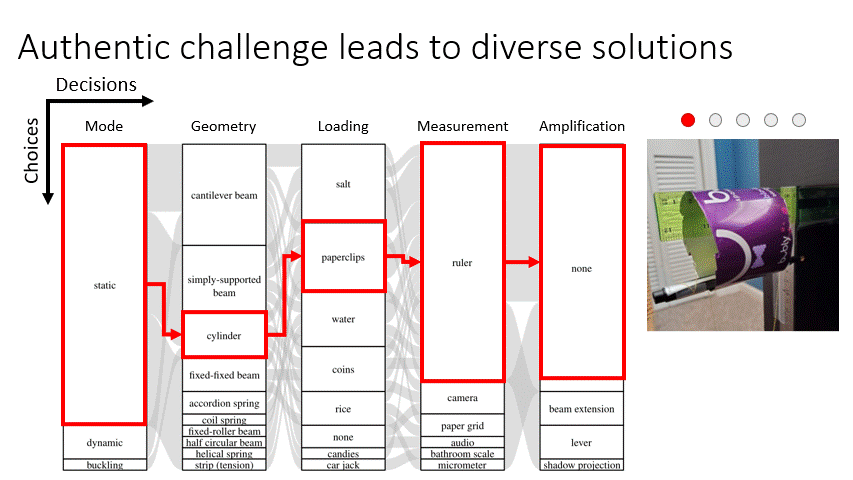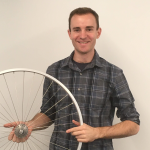
ABSTRACT
Under the new ABET accreditation framework, students are expected to demonstrate “an ability to develop and conduct appropriate experimentation, analyze and interpret data, and use engineering judgment to draw conclusions.” Traditional, recipe-based labs provide few opportunities for students to engage in realistic experimental design or develop a sense of agency, and research has cast doubt on their pedagogical benefit. At the same time, the COVID-19 pandemic forced institutions to move to remote learning. We developed a scaffolded series of remote lab activities for an upper-division mechanics of materials course, culminating in a collaborative guided-inquiry experiment design challenge. In the first iteration of the course, we mailed kits to students with basic supplies for the at-home experiments, while in the second students were expected to make use of readily-available household items. We analyzed 36 lab reports from the second iteration of the guided-inquiry lab and identified 25 unique approaches to the design challenge, an indication of a truly open-ended activity. Student outcomes were measured by post-lab surveys of attitudes and self-efficacy, as well as a standardized conceptual learning assessment. The fraction of students endorsing statements related to a sense of agency increased dramatically over the course of the semester: from 53% to 83% for goal-setting and from 63% to 92% for choice of methods. Self-efficacy increased significantly in the primary targeted skills (designing experiments and making predictions), but there was no significant shift in skills not explicitly targeted by the guided-inquiry lab (equitable sharing of labor, expressing opinions in a group, and interpreting graphs).
DOI: 10.18260/3-1-1153-36041
AUTHORS
|
|
|
|
|
|



